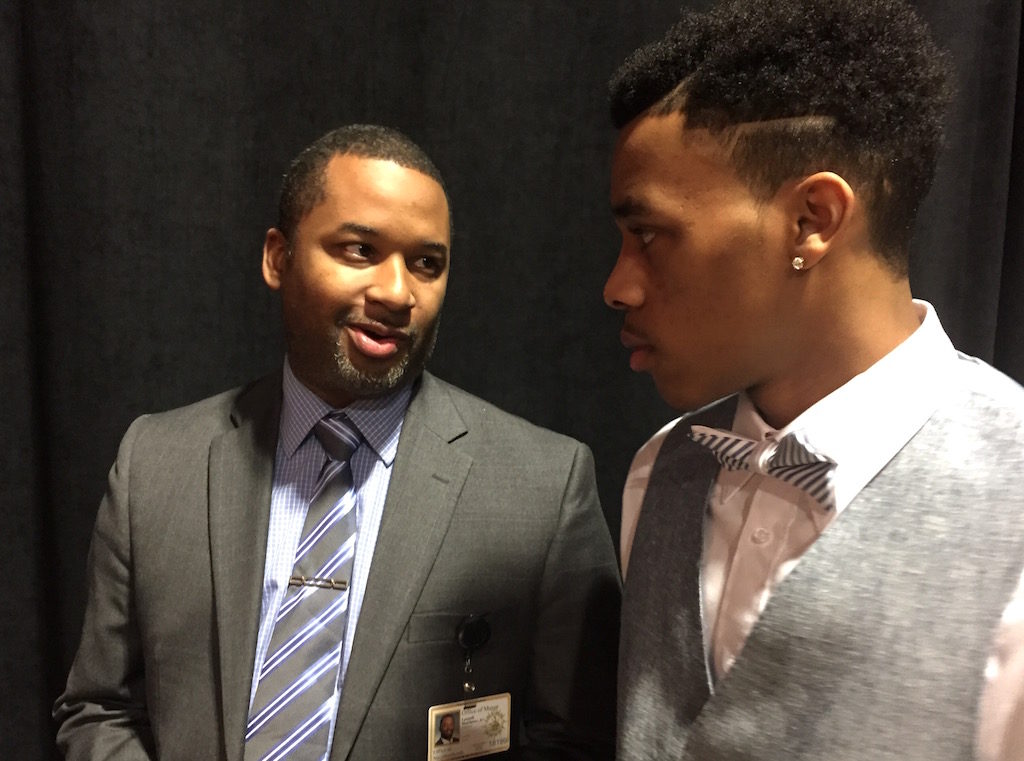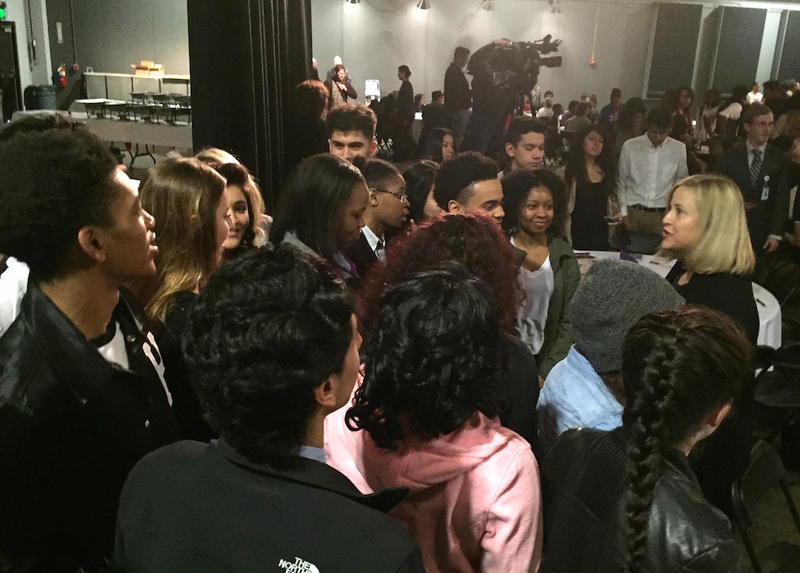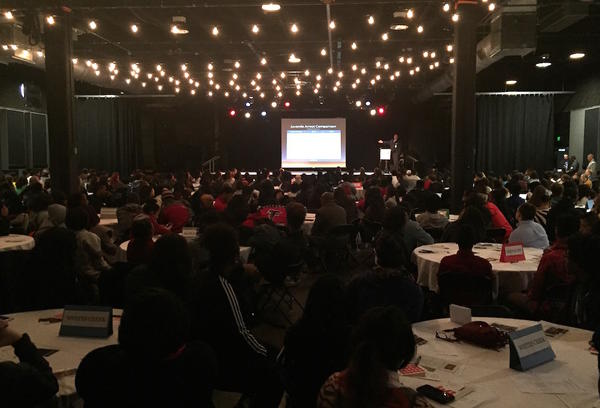
A deadly year for young people in Nashville — 36 under age 23 were shot or violently killed in 2015 — has prompted the city to act. A new safety plan due in March will propose changes to city policies and spending. One of the first steps, on Thursday, was hearing from 400 high school students.
The first large-scale Youth Violence Summit filled the Rocketown
concert venue in downtown Nashville with students from every city high school.
Just one was asked to speak on stage: Daquan Summers, an 18-year-old basketball standout at Hillwood High School.
But he hasn’t always been a role model — and said he grew up without one.
“I got kicked out of every elementary school in Murfreesboro. Got my first felony by age 12 for aggravated burglary,” he told his peers.
He was also expelled from a middle school. But a life can change, he told them.
“Your past doesn’t reflect your future. It doesn’t,” he said to applause.

It was Summers’ job to implore the students to open up during a full day of discussion.
“Let these people know what’s really going on. Don’t sugarcoat anything. If you know your neighborhood’s full of violence, let them know. Today we’re gonna be real. Because I was real with y’all, I need you to be real with them.”

Mayor Megan Barry drove home the point.
“We have a problem. And I need your help,” she said. “We have a problem when 36 youth are shot and killed or die violently. … I need you to tell me how we change this.”
She was joined by Councilman Freddie O’Connell, who recounted the
shooting death of 14-year-old Treyonta Burleson. Authorities say she died by gunshot after getting into a Facebook argument with Antwana Smith, 18, who
awaits trial.
“I can’t imagine how many things must have gone wrong for a young woman in Nashville to feel so angry that she concluded the best thing she could do was get a gun and pull the trigger,” he said. “My work … is to insure you all have better choices than that.”
Tony Majors, who oversees security for Metro Schools, showed students the most current available school crime stats, which show
expulsions are up, and suspensions down.
“If it’s access to weapons, access to drugs, the lack of adult mentorship … we want them to tell us that so we can begin to address them,” Majors said.
The Mayor’s
Office of Neighborhoods will host public meetings about violence on three Saturdays next month — hoping for some of the same honesty.
Details are available online here.



